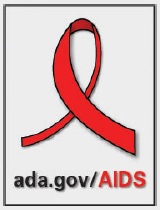I. Introduction
What is the ADA?
The Americans with Disabilities Act (ADA) gives federal civil rights protections to individuals with disabilities similar to those provided to individuals on the basis of race, color, sex, national origin, age, and religion. It guarantees equal opportunity for individuals with disabilities in public accommodations, employment, transportation, State and local government services, and telecommunications.
Are people living with HIV or AIDS protected by the ADA?
Yes. An individual has a “disability” under the ADA if he or she has a physical or mental impairment that substantially limits one or more major life activities, including major bodily functions such as the functions of the immune system; has a record of such an impairment; or has an actual or perceived mental or physical impairment that is not transitory and minor and is subjected to an action prohibited under the ADA. Persons with HIV, both symptomatic and asymptomatic, have physical impairments that substantially limit one or more major life activities or major bodily functions and are, therefore, protected by the law.
Persons who are discriminated against because they are regarded as having HIV are also protected. For example, a person who was fired on the basis of a rumor that he had AIDS, even if he did not, would be protected by the law.
Moreover, the ADA protects persons who are discriminated against because they have a known association or relationship with an individual who has HIV. For example, the ADA would protect a woman (who does not have HIV) who was denied a job because her roommate had AIDS.
Information on filing a complaint with the Department of Justice can be found at www.ada.gov/aids. For more information on how to send complaints to the Department by mail, fax, or email.


User Comments/Questions
Add Comment/Question